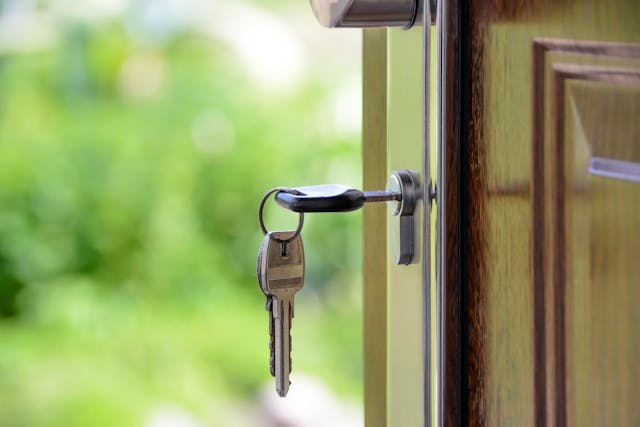Key Takeaways:
Clear Disclosure Requirements: New Jersey landlords must provide specific disclosures—including nonrefundable fees, security deposit terms, and the Truth in Renting guide—to ensure transparency and compliance from the start of the lease.
Tenant and Landlord Rights & Responsibilities: The landlord-tenant laws protect tenants with rights to habitable housing, privacy, and anti-discrimination safeguards, while landlords retain rights to collect rent, enforce leases, and enter with notice—provided they uphold health, safety, and legal standards.
Strong Legal Protections and Remedies: New Jersey regulations allow tenants to withhold rent for unaddressed habitability issues in the rental premises, and both parties can pursue legal remedies in small claims court, highlighting the importance of proper documentation and professional property management.
Understanding the rental housing law in New Jersey is crucial to avoid unnecessary penalties. If you are renting a home to tenants, the state’s landlord-tenant laws offer a clear legal framework and specific rules designed to protect both landlords and tenants.
New Jersey Rental Laws - An Overview of Landlord-Tenant Rights in New Jersey
Understanding the rental housing law in New Jersey is crucial to avoid unnecessary penalties and ensure a smooth landlord-tenant relationship.
If you’re renting a home to tenants, it’s not just about collecting rent and handling maintenance—it’s about complying with a set of legal responsibilities that govern everything from lease agreements to eviction procedures.
The state’s landlord-tenant laws offer a clear legal framework and specific rules designed to protect both landlords and tenants, making it essential for landlords to stay informed. By understanding and following the law, you’ll not only avoid costly mistakes but also build trust with tenants and operate your rental property more professionally.
Whether you’re a first-time landlord or growing your rental portfolio, knowing the legal ins and outs of the landlord-tenant laws will help you make smarter decisions, protect your investment, and provide a safe, compliant living space for your tenants.
If you're a property owner in New Jersey looking for support, visit our Why Hire Us page to learn how professional property management services can help you stay legally compliant and stress-free.
Required Landlord Disclosures in New Jersey
New Jersey requires landlords to provide specific disclosures to tenants at the start of the lease. These disclosures aim to ensure transparency and protect renters from unfair treatment or unexpected fees.

Here's what landlords in the Garden State must disclose before the tenancy:
Nonrefundable Fees: New Jersey landlords must clearly state in writing any nonrefundable fees in the lease agreement. This includes the purpose of the fee and whether it’s part of the security deposit or a separate, non-returnable charge.
Security Deposit: Landlords may collect a security deposit of up to one and a half months’ rent. They must return the deposit within 30 days of the tenant vacating the rental premises. If deductions are made, a written explanation must accompany the returned balance.
Rights of Domestic Violence Victims: Tenants who are victims of domestic violence can request to terminate a lease early by providing appropriate documentation, such as a restraining order or police report. This provision aims to protect tenants from ongoing danger and abuse.
Truth in Renting Act: Under New Jersey’s Truth in Renting Act, landlords of buildings with more than two rental units (excluding owner-occupied properties) must provide tenants with a Truth in Renting guide. This document, published by the New Jersey Department of Community Affairs, outlines tenant rights and responsibilities.
Owner or Agent Identity: The rental agreement must include the name and address of the person authorized to manage the rental and accept legal notices, including the landlord or their agent.
Move-in Checklist: Although not strictly required by New Jersey law, providing a move-in checklist is a best practice. It protects both parties by documenting the condition of the rental at the beginning of the lease.
Any risks or issues with the property that require mandatory disclosure to prospective renters must be disclosed, like the concentration of lead-based paint if the unit was built before 1978 or if the unit is in a flood zone.
New Jersey Tenant Rights and Responsibilities
Tenants in New Jersey enjoy several important protections under state law, aimed at promoting fair housing practices and maintaining safety standards and habitable living conditions for the rental property during a tenancy.

These laws outline both tenant rights and landlord responsibilities, ensuring a balanced rental relationship between you and your prospective renters. Under these protections, NJ tenants have the right to:
Live in a safe and habitable home
Receive timely repairs for serious issues
Enjoy quiet enjoyment and privacy
Remain in the rental until legally evicted
Receive proper notice before changes to the lease or rent amount
Be protected against discrimination and retaliation
At the same time, tenants in New Jersey also carry responsibilities during their tenancy:
Make rent payments and pay rent on time
Maintain the rental premises in a clean and undamaged condition
Follow the terms of the lease agreement
Provide proper notice before moving out
Avoid disturbing other tenants or violating local ordinances
For a more detailed breakdown of NJ landlord-tenant protections and obligations, explore our blog or contact us for expert rental guidance. If the tenant fails to abide by the lease and legal terms, as a landlord, you also have the right to evict tenants and start the legal eviction process.
New Jersey Landlord Rights and Responsibilities
Landlords in New Jersey have the legal right to:
Collect rent as agreed in the lease
Institute rent increases with proper notice (usually 30 days for month-to-month leases)
Charge late fees for missed rent payments as agreed upon in the lease. Late fees and their grace periods should be reasonable and proportionate to the rent. In NJ, senior citizens are protected. Senior citizens are allowed a five-day grace period for any missed payment.
Enforce lease provisions
Pursue legal eviction for valid causes such as nonpayment or lease violations
Enter the rental unit for inspections, repairs, or emergencies with reasonable notice
However, with these rights come responsibilities. During a tenancy, Landlords must:
Comply with New Jersey building, health, and safety codes
Provide prospective tenants with habitable housing with functioning utilities, plumbing, and heat
Respect tenant privacy and provide reasonable notice before entry
Handle security deposits according to state law
Refrain from retaliation if a tenant exercises legal rights
An Overview of the Landlord-Tenant Laws in New Jersey
Let’s take a closer look at some of the key areas covered by NJ landlord-tenant law:
1. Tenant Privacy and Landlord’s Right to Enter
Landlords in New Jersey may enter a tenant’s home for inspections, repairs, or to show the unit to potential tenants.

Landlords must provide reasonable advance notice to show the unit to potential tenants and may only enter at reasonable times. Exceptions include emergencies or abandonment of the rental. Giving advance notice is polite courtesy and important to maintaining landlord-tenant relationships, as well as staying legally compliant.
2. Condition, Maintenance, and Repairs
Under New Jersey landlord-tenant law, landlords are legally obligated to maintain their rental properties in a condition fit for habitation. This includes providing:
Safe and secure locks
Functioning plumbing, electrical, and heating systems
Clean and vermin-free premises at move-in
Adequate hot and cold water
Weatherproofing for roofs and windows
Smoke and carbon monoxide detectors are in working order
NJ tenants can request repairs and may take further action if serious problems are ignored.
3. New Jersey Housing Discrimination Laws
Under the New Jersey Law Against Discrimination (LAD), it is unlawful to refuse to rent or discriminate against tenants based on:
Race or color
National origin
Religion
Gender or sexual orientation
Gender identity or expression
Marital or familial status
Disability
Source of lawful income (e.g., housing vouchers)
These protections supplement federal Fair Housing Act rules and are strongly enforced in New Jersey.
4. Security Deposit Returns
As mentioned earlier, NJ landlords may not request more than 1.5 times the monthly rent for a security deposit. The landlord can use the security deposit to cover damages that exceed normal wear and tear.
They must return the deposit within 30 business days after the tenant vacates, along with an itemized list of deductions if applicable. The deposit must be kept in an interest-bearing account, and the tenant is entitled to annual interest.
5. Required Landlord Disclosures
Landlords must give tenants in New Jersey all required disclosures at the start of the lease. For example, this includes:
Disclosure of nonrefundable fees
Identity of the property manager or landlord
Truth in Renting booklet for applicable units
Security deposit terms
Failure to disclose required information to the parties involved may lead to legal penalties or invalidate parts of the lease.
6. Renters’ Rights to Withhold Rent
Tenants may withhold their rent in New Jersey if the landlord fails to make essential repairs that affect the rental's habitability. Before doing so, tenants are encouraged to notify the landlord in writing and allow a reasonable period for repairs. Alternatively, they may pay for the repairs themselves and deduct those payments from rent—a remedy known as "repair and deduct."
7. Small Claims Lawsuits in New Jersey
Disputes over security deposits are a common issue in New Jersey. If a landlord fails to return the deposit or withholds funds unfairly, tenants can file a claim in small claims court. The maximum payment that can be claimed in small claims court in New Jersey is $5,000.
To avoid these situations altogether, consider working with a professional property management company. Visit our services page to learn how we help landlords manage tenant communication, repairs, and legal compliance smoothly.
Conclusion
Understanding and complying with New Jersey’s landlord-tenant laws is essential for maintaining a professional and lawful rental business, protecting both the landlord and tenant parties during a tenancy period. If you have specific legal questions about rentals in New Jersey, speak with a licensed attorney.
You can also partner with a knowledgeable NJ property management company, like PMI Prime Property, to ensure your rental business operates smoothly and stays compliant with all relevant regulations.
We offer essential services to keep you legally compliant and make landlord-tenant relations a breeze. Contact PMI Prime Property for guidance on your property management needs or to learn more about how we can help you.
Disclaimer: This blog is for informational purposes only and should not be used as a substitute for legal advice from a licensed attorney in New Jersey. Laws may change, and this content may not reflect the latest updates.


